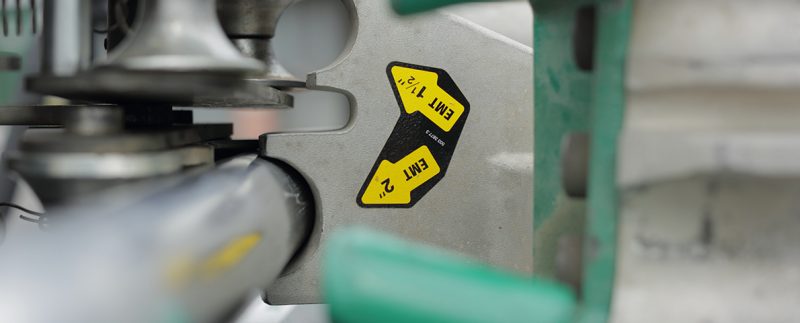If you’re thinking of making the switch from steel to aluminum conduit, you’re more than likely researching different aluminum EMT & conduit suppliers in San Antonio, TX. The experts with American Conduit welcome the opportunity to earn your trust. We’ll be more than happy to answer any questions you have, and we’ll work hard to make sure you’re completely satisfied. The following is just one of the many reasons you should turn to aluminum – corrosion resistance.
Aluminum EMT Conduit: Resistance to Corrosion and Rust
 One of the most significant concerns in electrical conduit systems is the potential for corrosion and rust, especially in harsh environments or outdoor applications. Fortunately, aluminum PullEase™ EMT (electrical metallic tubing) and RMC (rigid metal conduit) from American Conduit stand out for their exceptional resistance to corrosion and rust, making them ideal choices for a wide range of electrical projects.
One of the most significant concerns in electrical conduit systems is the potential for corrosion and rust, especially in harsh environments or outdoor applications. Fortunately, aluminum PullEase™ EMT (electrical metallic tubing) and RMC (rigid metal conduit) from American Conduit stand out for their exceptional resistance to corrosion and rust, making them ideal choices for a wide range of electrical projects.
Corrosion and Rust: The Enemies of Conduit Systems
Corrosion is a natural process that occurs when metals react with their environment, such as oxygen, moisture, and certain chemicals. Rust, specifically, is the corrosion of iron or steel surfaces when exposed to oxygen and moisture. Corroded conduits can lead to a variety of issues, including reduced structural integrity, compromised electrical performance, and increased maintenance costs. In extreme cases, corrosion can cause conduit failure, posing potential safety risks and disrupting electrical service.
The Advantages of Aluminum’s Corrosion Resistance
Unlike steel, which contains iron and is susceptible to rust, aluminum is a non-ferrous metal. This property gives aluminum its inherent resistance to rust. When exposed to oxygen and moisture, aluminum forms a thin, transparent oxide layer on its surface, which acts as a protective barrier against further corrosion. These are just some of the other advantages:
Self-Healing Properties
The oxide layer formed on aluminum’s surface is self-healing. If the oxide layer is scratched or damaged, it immediately reacts with oxygen to regenerate and restore its protective properties. This self-healing characteristic further enhances the conduit’s ability to withstand corrosive elements.
Chemical Resistance
Aluminum exhibits remarkable resistance to a wide range of chemicals and substances commonly found in industrial environments. This resistance ensures that the conduit can maintain its integrity and performance, even when exposed to corrosive gases, acids, or alkaline solutions.
Outdoor Applications
Outdoor electrical installations are particularly vulnerable to environmental elements that can lead to corrosion and rust. Aluminum resistance to these factors makes it an excellent choice for outdoor applications, such as street lighting, traffic signals, and electrical distribution systems..
Moisture Resistance
PullEase™ EMT and RMC are very effective in areas with high humidity or frequent exposure to moisture. They don’t absorb water, which helps prevent the onset of corrosion and eliminates concerns about the conduit becoming waterlogged over time.
Marine Environments
For projects located near coastal regions or marine environments, aluminum EMT conduit is an excellent choice due to its saltwater resistance. Saltwater is highly corrosive to many materials, but aluminum’s inherent properties make it a durable option for such environments.
Reduced Maintenance
The resistance to corrosion and rust means that aluminum EMT conduit requires minimal maintenance over its service life. This reduces the need for frequent inspections, repairs, and replacements, leading to cost savings and increased efficiency.
By selecting aluminum EMT and conduit from reputable aluminum EMT & conduit suppliers in San Antonio, TX, electrical professionals can have confidence in their installations. They’ll know they’re using a material designed to withstand the toughest conditions. See for yourself by contacting American Conduit online or calling 1-800-334-6825.

